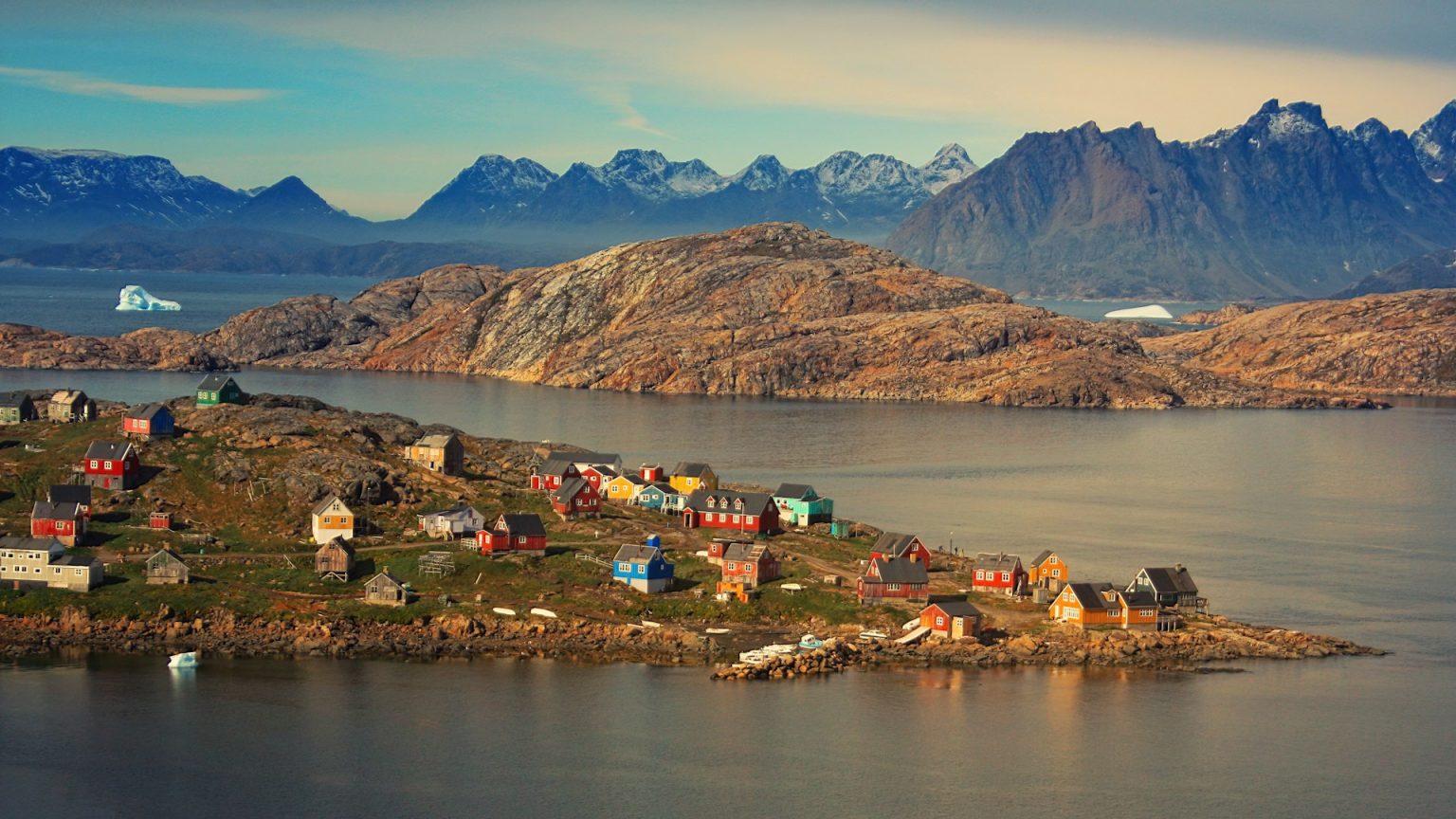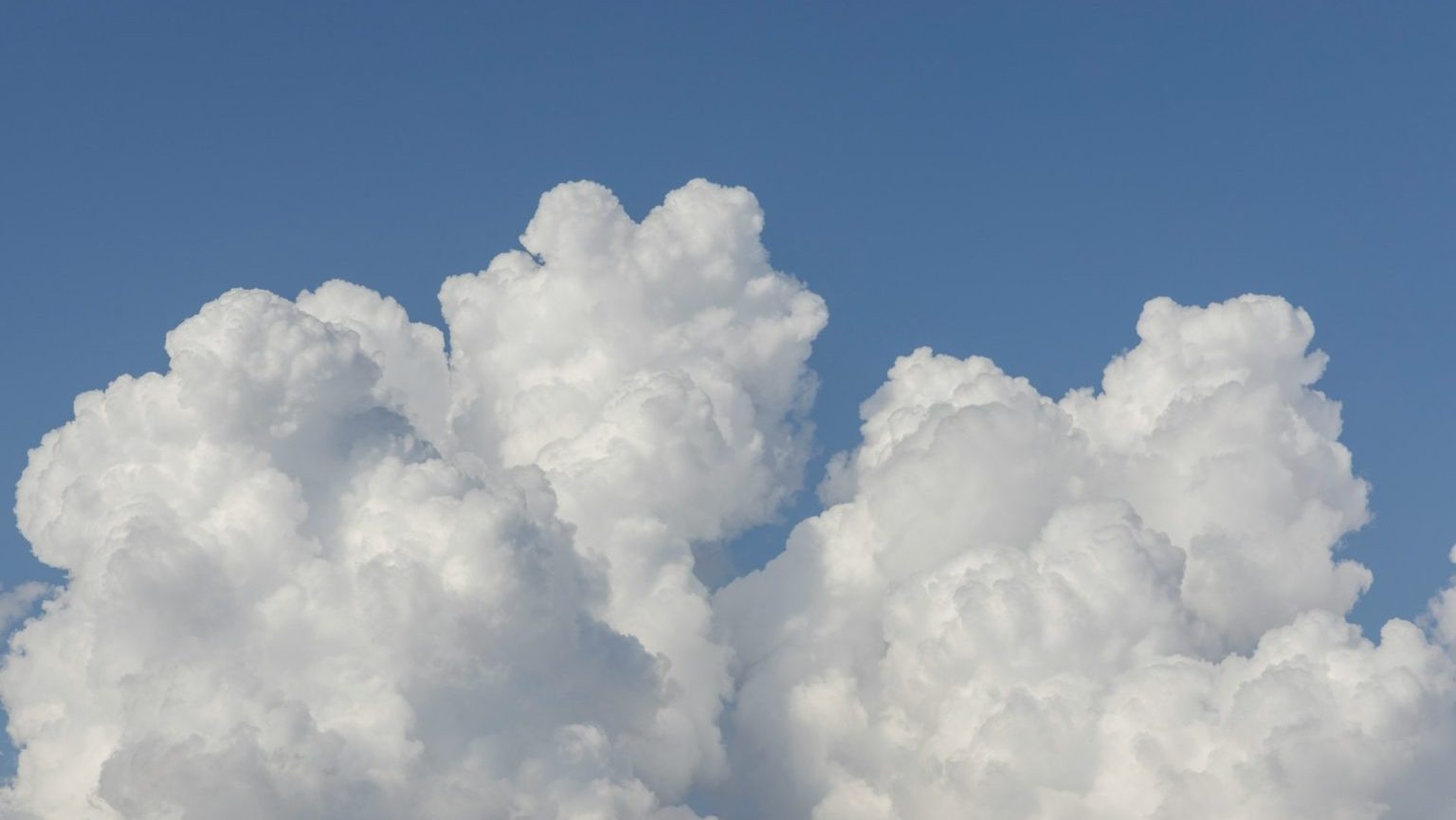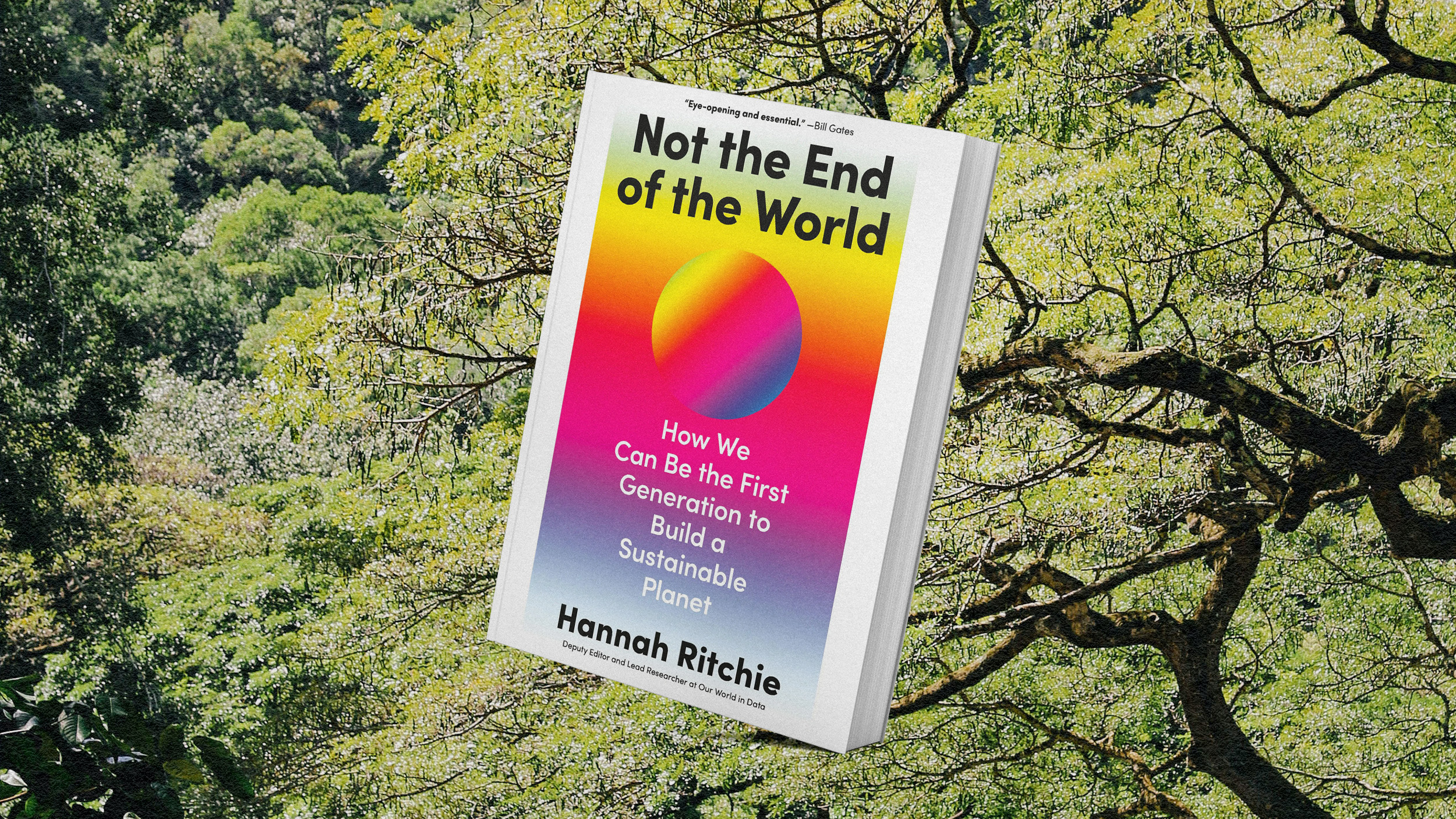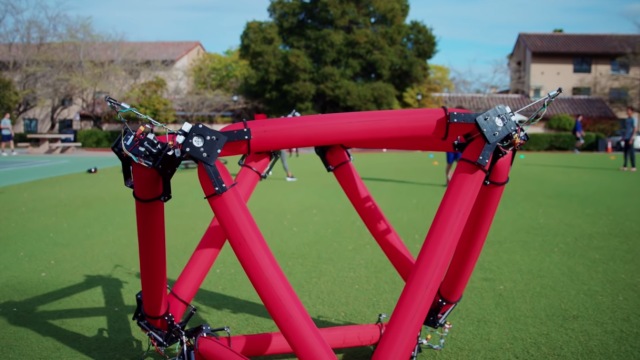Less pollution during COVID-19 is not a ‘silver lining’, says UN environment chief
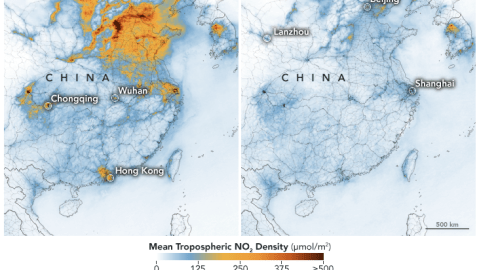
NASA and European Space Agency (ESA)
- Satellite imagery shows that significantly lower air pollution over much of the planet in the wake of the COVID-19 pandemic.
- As the U.S. was preparing an economic stimulus package for struggling Americans, some lawmakers tried in vain to include environmental provisions.
- Whether now is an appropriate time to consider restructuring the economy and energy infrastructure is a controversial topic.
The COVID-19 pandemic has produced surreal images: Mask-wearing shoppers stocking up on toilet paper and canned food. City streets, once bustling, now empty. Semi-trucks parked on sidewalks, converted into temporary morgues.
But zoom out far enough, and the images of the pandemic tell a different story — one with clearer skies.
NASA and the European Space Agency recently released satellite imagery showing how the slowing of the global economy has significantly reduced air pollution over China, Italy, the U.S., and other nations. The images show drastic drops in nitrogen dioxide, which is produced mainly by cars, trucks, buses, power plants, and off-road equipment, according to the U.S. Environmental Protection Agency.
However, the head of the UN Environment Programme (UNEP), Inger Andersen, warns against viewing this as a “silver lining.”
“And as we inch from a ‘war-time’ response to ‘building back better,’ we need to take on board the environmental signals and what they mean for our future and wellbeing, because COVID-19 is by no means a ‘silver lining’ for the environment,” Andersen wrote in a recent blog post. “Visible, positive impacts – whether through improved air quality or reduced greenhouse gas emissions – are but temporary, because they come on the back of tragic economic slowdown and human distress.”
The relationship between pandemics and the environment
Andersen noted two key reasons why the environment is directly relevant to the spread of zoonotic diseases like COVID-19. First, as human development continues to creep into new ecosystems, it’s bound to put people in close contact with wildlife, which is how zoonotic viruses spread.
“According to IPBES, we have seen 100 million hectares of agricultural expansion in the tropics between 1980 and 2000, roughly equal to the size of France and Germany combined,” Andersen wrote. “The ‘wild’ must be kept ‘wild.’ It is time to restore our forests, stop deforestation, invest in the management of protected areas, and propel markets for deforestation-free products. Where the legal wildlife trade chain exists, we need to do a far better job of improving hygiene conditions.”
The blog post also noted that global warming is making it easier for dangerous microbes to survive in the environment.
For Anderson, the pandemic presents an opportunity to redirect the economy toward a greener future:
“So, in the aftermath of the crisis, when economic stimulus packages composed of infrastructure are designed, there is a real opportunity to meet that demand with green packages of renewable energy investments, smart buildings, green and public transport, etc..”
When the U.S. government was preparing its recent economic stimulus package, House Democrats sought to include some environmental provisions, such as requiring airlines to lower emissions, putting $100 million toward developing sustainable aviation fuels, and allocating aid money for the national wind and solar industries.
Ultimately, these measures didn’t make it into the package. Some lawmakers and commentators criticized Democrats for trying to weave environmental protections into an urgently needed bill designed to help financially struggling Americans. (Although, to be sure, Republicans had pet projects of their own which they sought to include in the bill.)
Currently, it’s unclear whether measures that would aid U.S. renewable energy companies will be included in future stimulus packages.
The pandemic is a ‘portal’
As the economy continues to spiral and U.S. unemployment reaches a record high, is now the time to consider making massive changes to the ways we envision our society? One interesting answer comes from Indian author Arundhati Roy.
In a recent piece in the Financial Times, Roy writes that the pandemic is a “portal, a gateway between one world and the next.” Roy makes no explicit mention of the environment or climate change, and he’s not necessarily suggesting that efforts to restructure society should take priority over, say, aid packages to citizens. But he does argue that we shouldn’t aim to return to “normality” as the global community begins to repair the damage caused by the pandemic:
“Our minds are still racing back and forth, longing for a return to ‘normality’, trying to stitch our future to our past and refusing to acknowledge the rupture. But the rupture exists. And in the midst of this terrible despair, it offers us a chance to rethink the doomsday machine we have built for ourselves. Nothing could be worse than a return to normality.
Historically, pandemics have forced humans to break with the past and imagine their world anew. This one is no different. It is a portal, a gateway between one world and the next.
We can choose to walk through it, dragging the carcasses of our prejudice and hatred, our avarice, our data banks and dead ideas, our dead rivers and smoky skies behind us. Or we can walk through lightly, with little luggage, ready to imagine another world. And ready to fight for it.”

